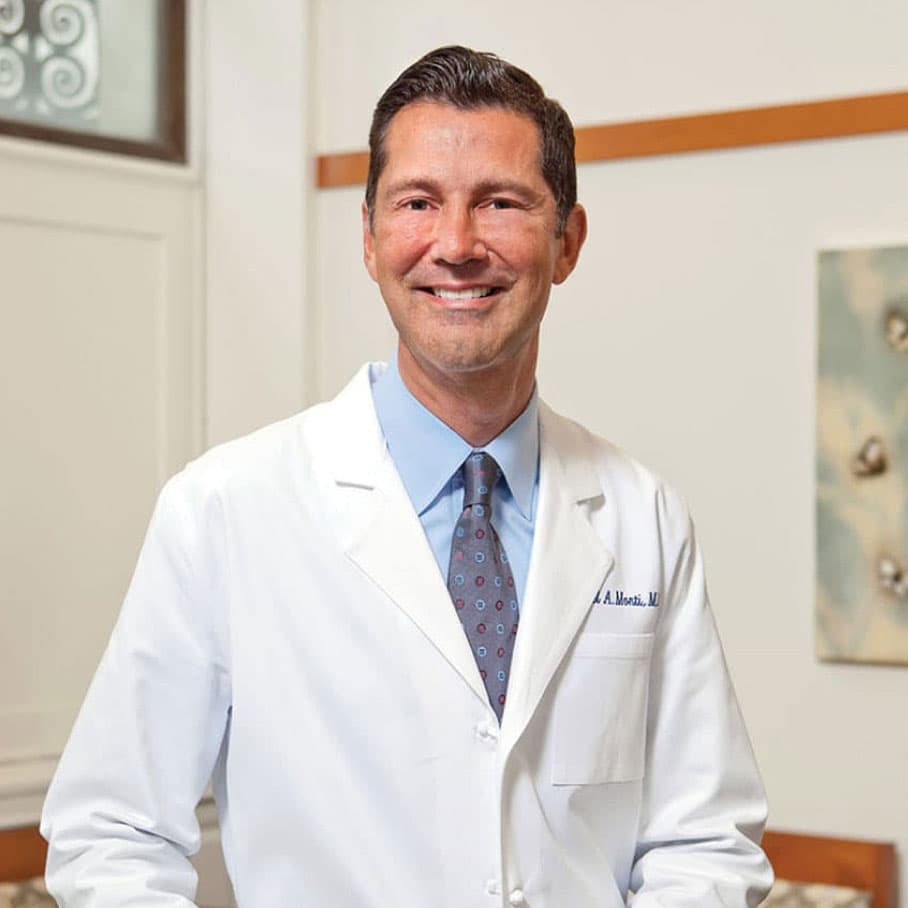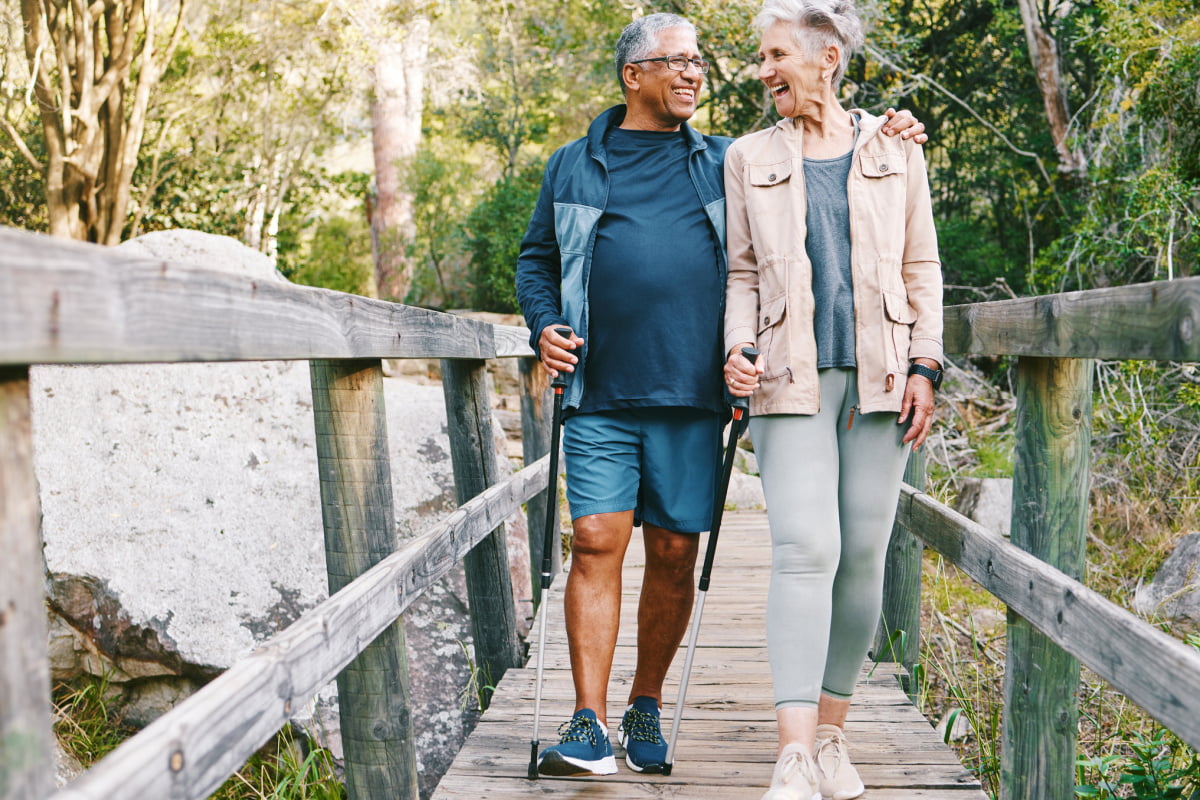In the quest for a longer, healthier life, integrative medicine physicians often emphasize the importance of simple daily practices. These practices, which are rooted in scientific research and promote a holistic approach to wellness, can significantly contribute to longevity and overall well-being. Here, integrative health expert Dr. Dan Monti of the Marcus Institute of Integrative Health shares six key practices that you can incorporate into your lifestyle starting today.

Keep it moving
An active lifestyle is a foundational part of longevity medicine. Getting regular physical activity, such as brisk walking, swimming, or yoga, helps prime the body for long-term physical, mental, and emotional health. Low-impact exercise helps maintain a healthy weight, improves cardiovascular health, strengthens muscles, enhances flexibility, and enhances mental health outcomes.
Regular physical activity helps lower the risks of chronic diseases and certain cancers, keeps muscles and joints strong, and increases blood flow and vitality.
—Adapted from Tapestry of Health: Weaving Wellness Into Your Life Through the New Science of Integrative Medicine, Dr. Monti’s integrative medicine book

Eat to live, rather than live to eat
Adopting a balanced diet rich in vegetables, select fruits and whole grains, lean proteins, and healthy fats can significantly impact longevity. Plant-based whole foods in particular provide essential nutrients, antioxidants, and fiber, which all help lower the risk of chronic diseases, maintain a healthy gut microbiome, and support overall immune function.
We often see people who have become depleted of essential vitamins and other nutrients, which we can correct with targeted nutrient therapies. We use precision testing to personalize supplementation to your specific deficiencies and needs.
Get a good night’s sleep for a better quality of life
Improving your longevity relies heavily on the quality and duration of your sleep. Sleep is when your body repairs itself, particularly your heart and blood vessels. Chronic sleep deprivation is linked to heart disease, kidney disease, high blood pressure, diabetes, and stroke. The precise amount of sleep you need will vary based on individual factors, but 7-9 hours per night is typically the standard recommendation.
- Read our groundbreaking research on vibro-acoustic insomnia therapy here »
- Dr. Monti provides more insight into the effects of sleep on your health and well-being in his book, Tapestry of Health. Get your copy here »

Don’t let stress manage you: Find sustainable stress management strategies
Chronic stress can take a toll on the body, leading to serious health concerns such as high blood pressure, heart disease, obesity, and diabetes to name a few. While some stress is a normal part of life, there are easy, low-cost practices that can help you de-stress. Some of the most effective functional health practices to help manage stress include mindfulness, meditation, deep breathing exercises, and engaging in hobbies.
If you are looking for an immersive program, the Mindfulness-Based Stress Reduction program (MBSR) teaches you how to incorporate mindfulness into your life to help you work with multiple types of stress—medical, psychological, and social.
Mindfulness means paying attention to your inner dialogue in the present moment, focusing on the “what is” for better mental clarity to deal with life’s stressors—improving your mental health and physical well-being for greater longevity.
—Adapted from Tapestry of Health: Weaving Wellness Into Your Life Through the New Science of Integrative Medicine
Use controlled temperature therapies to your advantage
Regularly exposing the body to extreme temperatures, either cold or hot, can impact longevity in several ways. These should only be engaged in after discussing these strategies with your physician.
- Controlled cold exposure: Immersing yourself in cold water (such as in a cold plunge pool) or taking a cold shower can enhance circulation, reduce inflammation, and potentially boost the immune system. The shock from cold exposure prompts the body to activate natural healing mechanisms, potentially improving cardiovascular health and boosting your resilience against illnesses. Cold exposure is also believed to activate brown fat, which plays a role in burning calories and may aid in healthy weight management.
- Controlled heat exposure: The higher temperatures experienced in a sauna can improve cardiovascular function, similar to moderate exercise. Sauna bathing is associated with reduced risks of heart disease, stroke, hypertension, and even neurodegenerative diseases. Additionally, the heat stress induced by a sauna session can help detoxify the body and might also activate heat shock proteins, supporting cellular repair for optimal longevity.

Find your community
People who make and maintain strong social connections and participate in community activities typically experience improved longevity. Social interaction helps ward off loneliness and depression, which are associated with shorter lifespans.
Additionally, joining social activities and nurturing close, positive relationships can boost mental health, enhance emotional well-being, and even strengthen your immune system. This was a common thread in the “Blue Zones,” which Dr. Monti discussed in this recent article.
More about Dr. Dan Monti
Dr. Dan Monti is the founder and CEO of the Marcus Institute of Integrative Health at Jefferson Health, and the host of “The Dr. Monti Show,” where he joins the world’s top medical experts to use the synergistic healing power of the most advanced treatments modern medicine has to offer with proven ancient health principles to transform standard health practices.
If you are looking for a functional medicine physician, the integrative health experts at the Marcus Institute can treat you with an approach that bridges conventional medicine with innovative, research-driven techniques. To learn more about integrative health or to schedule your appointment, contact the Marcus Institute.
References »
Warburton DE, Nicol CW, Bredin SS. Health benefits of physical activity: the evidence. Canadian Medical Association Journal. 2006 Mar 14;174(6):801-9. doi: 10.1503/cmaj.051351.
Zhang P. Influence of Foods and Nutrition on the Gut Microbiome and Implications for Intestinal Health. International Journal of Molecular Sciences. 2022 Aug 24;23(17):9588. doi: 10.3390/ijms23179588.
Grandner MA, Alfonso-Miller P, Fernandez-Mendoza J, Shetty S, Shenoy S, Combs D. Sleep: important considerations for the prevention of cardiovascular disease. Current Opinion in Cardiology. 2016 Sep;31(5):551-65. doi: 10.1097/HCO.0000000000000324.
Delpierre C, Lefèvre T. Precision and personalized medicine: What their current definition says and silences about the model of health they promote. Implication for the development of personalized health. Frontiers in Sociology. 2023 Feb 21;8:1112159. doi: 10.3389/fsoc.2023.1112159.
Yaribeygi H, Panahi Y, Sahraei H, Johnston TP, Sahebkar A. The impact of stress on body function: A review. EXCLI Journal. 2017 Jul 21;16:1057-1072. doi: 10.17179/excli2017-480.
Esperland D, de Weerd L, Mercer JB. Health effects of voluntary exposure to cold water – a continuing subject of debate. International Journal of Circumpolar Health. 2022 Dec;81(1):2111789. doi: 10.1080/22423982.2022.2111789.
Henderson KN, Killen LG, O’Neal EK, Waldman HS. The Cardiometabolic Health Benefits of Sauna Exposure in Individuals with High-Stress Occupations. A Mechanistic Review. International Journal of Environmental Research and Public Health. 2021 Jan 27;18(3):1105. doi: 10.3390/ijerph18031105.
Umberson D, Montez JK. Social relationships and health: a flashpoint for health policy. Journal of Health and Social Behavior. 2010;51 Suppl(Suppl):S54-66. doi: 10.1177/0022146510383501.


